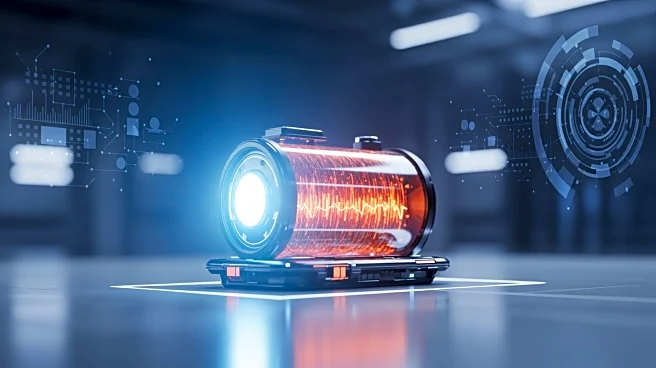What's Happening?
Epsilon Advanced Materials, an Indian energy storage firm, is preparing to establish a graphite anode factory in North Carolina, aiming to supply enough material for 1 million U.S.-made electric vehicles (EVs) annually by 2030. The company has secured
necessary permits and anticipates starting operations in 2027, initially targeting a production capacity of 30,000 tons, sufficient for 500,000 EVs. This move comes as U.S. automakers adjust their EV manufacturing strategies following the expiration of the $7,500 federal EV tax credit. Despite a recent slump in EV sales, industry analysts expect continued interest due to state and dealer incentives and potential savings on total cost of ownership.
Why It's Important?
The establishment of Epsilon's factory is significant for the U.S. EV market, as it promises to bolster domestic supply chains and reduce reliance on foreign materials, particularly graphite sourced from China. This development aligns with broader efforts to enhance the resilience of clean energy technologies in the U.S. The factory's production could help stabilize the EV market, which is currently navigating policy changes and fluctuating consumer interest. Additionally, the partnership with Phillips 66 to supply green and calcined needle coke underscores a commitment to integrating more sustainable practices in the EV battery supply chain.
What's Next?
Epsilon's factory is expected to reach full production capacity by 2030, potentially influencing federal energy policies and market dynamics. As the public EV charging network expands, consumer confidence in EVs may grow, supporting market recovery. The ongoing research into silicon anodes by the U.S. Department of Energy and private sector innovators like General Motors and OneD Battery Sciences could further enhance battery performance and affordability, driving future EV adoption.
Beyond the Headlines
The shift towards domestic production of EV battery components reflects a strategic move to mitigate supply chain vulnerabilities and foster innovation in sustainable energy solutions. The focus on silicon anodes, which offer higher energy storage capacity than graphite, represents a significant technological advancement that could reshape the EV industry. This transition also highlights the evolving landscape of energy materials, with potential long-term impacts on environmental sustainability and economic competitiveness.

















